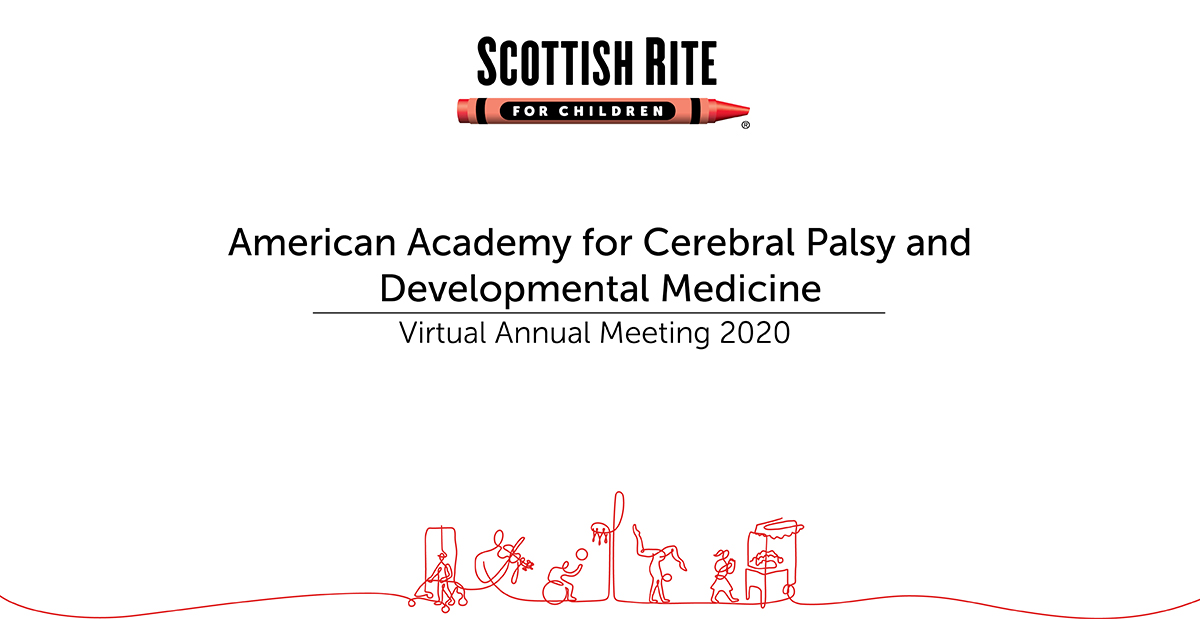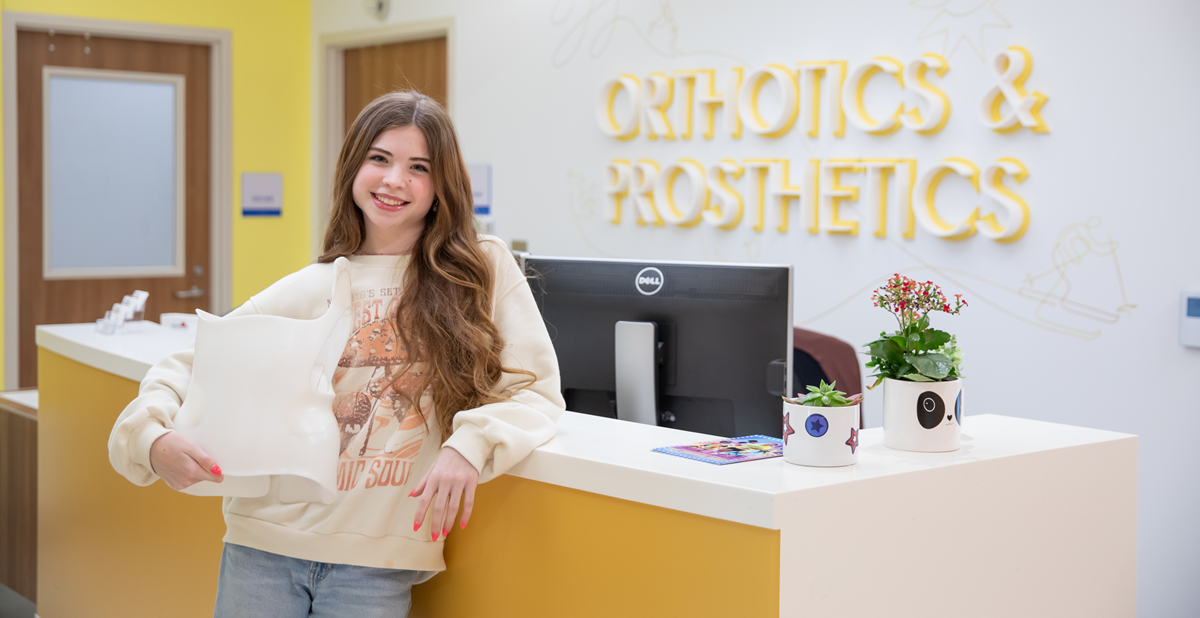
Nov 05, 2020 / Research & Innovation
Staff Make Strong Impact at Virtual Cerebral Palsy Meeting
Recently, staff from various departments at Scottish Rite for Children participated in the 74th annual meeting of the American Academy for Cerebral Palsy and Developmental Medicine. Held virtually, the projects presented by our team and other specialists from across the country are now available as on-demand recordings.
The American Academy of Cerebral Palsy and Developmental Medicine (AACPDM) includes over 1,100 health care professionals including surgeons, pediatricians, therapists and others who are dedicated to advancing the education, care and research for individuals with cerebral palsy and other childhood-onset disabilities. Members involved with this group have diverse backgrounds with expertise in different areas – allowing the AACPDM to harness collaboration, ultimately advancing the care for this patient population.
Each year, Scottish Rite has a strong showing at this international meeting. As an institution dedicated to caring for complex neurological conditions, our multidisciplinary team conducts ongoing research to discover the most innovative treatment techniques for these children.
Former medical director of the Neurology and Rehabilitation Medicine department, Mauricio R. Delgado, M.D., led the 74th annual meeting and completed his commitment as president of the organization. In addition, research was presented from various departments including Movement Science, Pediatric Developmental Disabilities, Psychology, Orthopedics and Therapy Services. Below is the list of projects shared:
Learn more about our Neurology and Rehabilitation Medicine department.
The American Academy of Cerebral Palsy and Developmental Medicine (AACPDM) includes over 1,100 health care professionals including surgeons, pediatricians, therapists and others who are dedicated to advancing the education, care and research for individuals with cerebral palsy and other childhood-onset disabilities. Members involved with this group have diverse backgrounds with expertise in different areas – allowing the AACPDM to harness collaboration, ultimately advancing the care for this patient population.
Each year, Scottish Rite has a strong showing at this international meeting. As an institution dedicated to caring for complex neurological conditions, our multidisciplinary team conducts ongoing research to discover the most innovative treatment techniques for these children.
Former medical director of the Neurology and Rehabilitation Medicine department, Mauricio R. Delgado, M.D., led the 74th annual meeting and completed his commitment as president of the organization. In addition, research was presented from various departments including Movement Science, Pediatric Developmental Disabilities, Psychology, Orthopedics and Therapy Services. Below is the list of projects shared:
- Identification of Co-Contraction of the Tibialis Anterior and Gastrocnemius in Patients with Hemiplegic Cerebral Palsy
- Can Community Ambulation Measures Serve as Complimentary Data to Gait Analysis Variables?
- A Repeat Dose of Pediatric Constraint Induced Movement Therapy
- Coaching Caregivers to Implement Constraint Induced Movement Therapy for Young Children with Unilateral Cerebral Palsy
- A Trauma Informed Interdisciplinary Approach Facilitates Rehabilitation for a Child with Cerebral Palsy Who Experienced Severe Neglect
- Standardizing Psychosocial Evaluations When Assessing Candidacy for Intrathecal Baclofen Therapy in Children Who Do Not Ambulate
- Efficacy and Safety of AbobotulinumtoxinA for Upper Limb Spasticity in Children with Cerebral Palsy: Results from an International, Phase 3, Pivotal Study
- Use of Motion Analysis to Identify and Treat Patients with Hereditary Spastic Paraplegia (HSP)
- Hereditary Spastic Paraparesis: A Multidisciplinary Approach to Diagnosis and Treatment
- Transition for People with Spina Bifida: Update and Discussion of National Initiatives for Local Applications
- Neurosurgical Procedures for Co-morbid Conditions after Closure of Myelomeningocele by Fetal Surgery Versus by Postnatal Surgery: A Matched Cohort Study
Learn more about our Neurology and Rehabilitation Medicine department.



